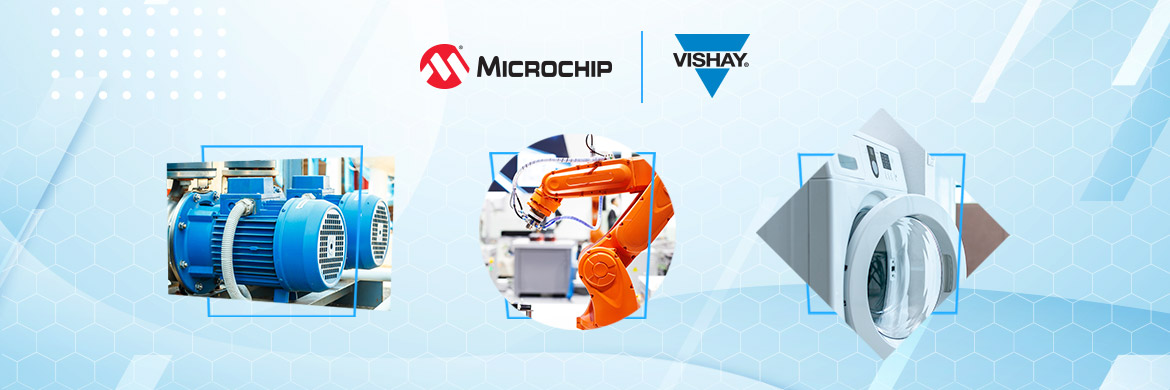

Current sensing is needed for closed-loop control in power supplies, and especially for motor control. For motors, a loop can be closed via feedback from an encoder or tachometer. But this approach is complicated, costly and requires access to the motor for mounting. Resistor-based current sensing offers an attractive, widely used approach when compared to Hall Effect or a current-sense coil. Based on Ohm's Law (I=V/R), the technique looks straightforward. But accurate, reliable implementation of resistor-based current sensing has many subtleties and issues that need to be considered. These include such considerations as high- versus low-side, determining the resistor value, choosing the right type of resistor, and the physical connection.
When maximizing efficiency, lowering wasted power and reducing heat dissipation, Vishay and Microchip offer a robust solution for rugged industrial applications requiring long-term performance. Combining the two together, specifically designed current sense resistors and amplifiers provide an accurate, highly reliable current sense solution for motor control, even when measuring high-side and low-side currents.
Using a resistor for current sensing is very simple, as long as real-world issues and trade-offs are understood & resolved.